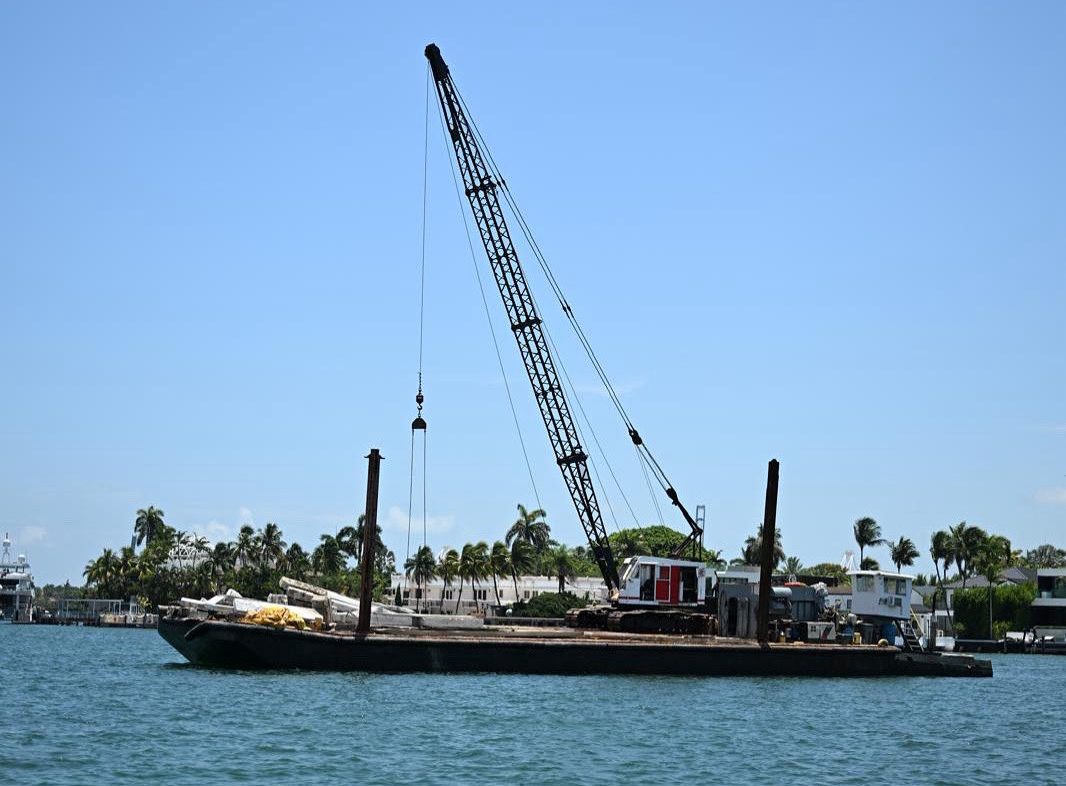World
Coast Guard Loopholes Linked to Fatal Barge Crash in Florida

A tragic incident in Biscayne Bay has raised serious concerns regarding safety regulations for commercial vessels. A tugboat pushing a barge collided with a sailboat carrying summer campers, resulting in the deaths of two girls and serious injuries to two others. Maritime experts indicate that the tugboat operator may not have been a licensed captain due to existing loopholes in U.S. Coast Guard regulations.
Experts reported to the Miami Herald that if a commercial tugboat measures less than 26 feet, it faces fewer operational requirements. This regulatory gap has significant implications for safety standards. A retired ferry, barge, and tugboat captain, along with representatives from a South Florida tugboat company, confirmed these findings, suggesting that the operator of the tugboat involved in the collision may not have met the necessary licensing criteria.
Under federal law, vessels of this size do not mandate a licensed captain for operation. The only stipulation is that the operator must be a U.S. citizen. This lack of stringent requirements has sparked debate about the adequacy of safety measures in the maritime industry, especially concerning vessels that operate in busy waterways like Biscayne Bay.
Regulatory Oversight Under Scrutiny
A review by the Miami Herald of the Coast Guard’s navigational rules has highlighted these regulatory loopholes. The incident has prompted calls for a comprehensive examination of existing laws governing the operation of small commercial vessels. Safety advocates argue that the current framework fails to ensure that all operators possess the necessary skills and training to navigate potentially dangerous situations.
The implications of this barge crash extend beyond the immediate tragedy. With the summer season seeing increased recreational boating activity, experts are urging lawmakers to reconsider the regulations that govern smaller vessels. The goal is to prevent future accidents and ensure the safety of all on the water.
As investigations continue, the families affected by this tragedy are grappling with their loss. The community has come together to support the victims and advocate for changes in maritime safety legislation. The call for reform reflects a growing recognition of the need to address regulatory gaps that could compromise safety.
The U.S. Coast Guard is expected to review its policies in light of this incident, as public pressure mounts for stronger oversight of commercial operations. As the investigation unfolds, it remains critical for stakeholders to prioritize safety and accountability in the maritime industry, ensuring that such devastating accidents do not recur.
-

 Lifestyle3 months ago
Lifestyle3 months agoLibraries Challenge Rising E-Book Costs Amid Growing Demand
-

 Sports3 months ago
Sports3 months agoTyreek Hill Responds to Tua Tagovailoa’s Comments on Team Dynamics
-

 Sports3 months ago
Sports3 months agoLiverpool Secures Agreement to Sign Young Striker Will Wright
-

 Lifestyle3 months ago
Lifestyle3 months agoSave Your Split Tomatoes: Expert Tips for Gardeners
-

 Lifestyle3 months ago
Lifestyle3 months agoPrincess Beatrice’s Daughter Athena Joins Siblings at London Parade
-

 World3 months ago
World3 months agoWinter Storms Lash New South Wales with Snow, Flood Risks
-

 Science3 months ago
Science3 months agoTrump Administration Moves to Repeal Key Climate Regulation
-

 Science2 months ago
Science2 months agoSan Francisco Hosts Unique Contest to Identify “Performative Males”
-

 Business3 months ago
Business3 months agoSoFi Technologies Shares Slip 2% Following Insider Stock Sale
-

 Science3 months ago
Science3 months agoNew Tool Reveals Link Between Horse Coat Condition and Parasites
-

 Sports3 months ago
Sports3 months agoElon Musk Sculpture Travels From Utah to Yosemite National Park
-

 Science3 months ago
Science3 months agoNew Study Confirms Humans Transported Stonehenge Bluestones









